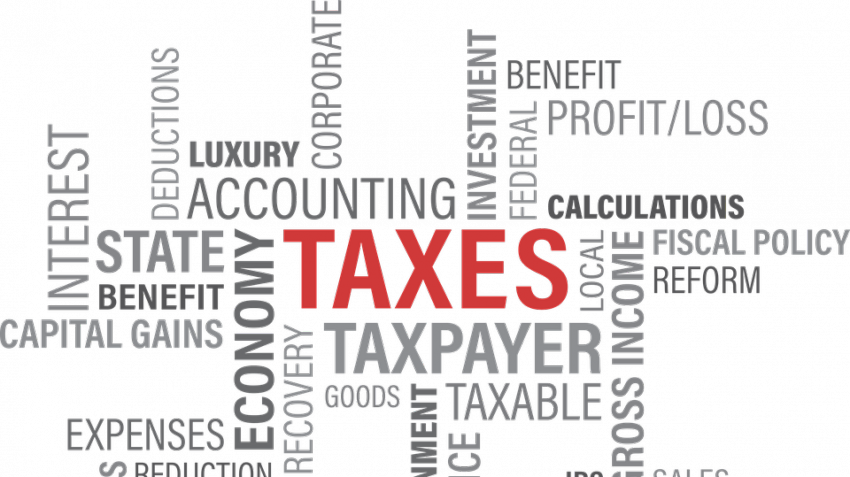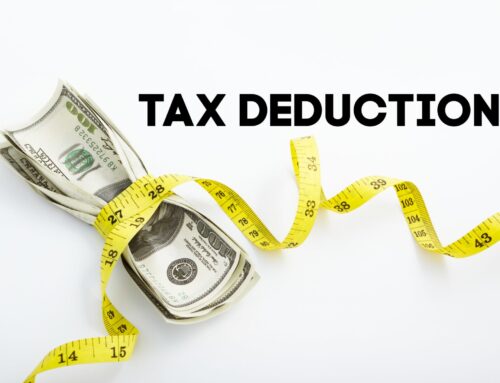Tax Deductions for Small Business

By Barbara Weltman @ Small Business Trends
https://smallbiztrends.com/2016/02/top-tax-deductions-for-small-business.html
Barbara Weltman is the Tax Columnist for Small Business Trends. Barbara is an author, attorney and a leading authority on tax, law, and finance for small business. She publishes an “Idea of the Day®” and monthly e-newsletter at “Big Ideas for Small Business®” and is a trusted professional advocate for small businesses and entrepreneurs. She has written over 25 books, including perennial top sellers, “J.K. Lasser’s Small Business Taxes” and “J.K. Lasser’s 1001 Deductions & Tax Breaks,” along with her latest books, “Guide to Self-Employment” and “Smooth Failing,” and is a blogger for SBA.gov, Entrepreneur, and AmEx OPEN.
Barbara Bio: https://smallbiztrends.com/author/barbara-weltman
Deductible business expenses help entrepreneurs with many of the costs of running a company. Business owners know that most expenditures can be written off, although there may be limits and timing issues. So what are the most common tax deductions for small business?
Last fall the IRS released data on sole proprietorship returns. The same types of deductions can be claimed by other entities — C corporations, S corporations, partnerships, and limited liability companies (LLCs) (although there may be slightly different rules for some deductions).
See which ones apply to your 2018 tax return and think about which may impact your 2019 tax year for purposes of estimating taxes and business planning.
Here is a roundup of the most common tax deductions that were claimed on Schedule C of Form 1040 by sole proprietors (including independent contractors and one-member limited liability companies not reporting elsewhere) as determined by the dollar amounts, starting with the largest category.

Note: This list has been specially updated for the 2018/2019 tax season.
Top Tax Deductions for Small Business
1. Car and truck expenses. Most small businesses use a vehicle, such as a car, light truck or van. The cost of operating the vehicle for business is deductible only if there are required records to prove business usage. In deducting costs, the need to keep records of cost (e.g., gasoline, oil changes) is eliminated if you rely on the IRS standard mileage rate of 54.5 cents per mile in 2018 (58 cents per mile in 2019) instead of deducting your actual outlays. You can use the standard mileage rate whether you own or lease the vehicle.
2. Salaries and wages. Payments to employees, including salaries, wages, bonuses, commissions, and taxable fringe benefits, are deductible business expenses for the business. (For employee benefit programs, such as retirement plan contributions, see item #19.) Of course, payments to sole proprietors, partners, and LLC members are not wages (i.e., they are not deductible business expenses) because these owners aren’t employees.
3. Contract labor. Many small businesses use freelancers or independent contractors to meet their labor needs. The cost of such contract labor is deductible. Be sure to issue Form 1099-MISC to any such contractor receiving $600 or more from you in the year (if payment is made to the contractor via credit card or PayPal, it’s up to the processor to issue them Form 1099-K, but you may want to send your own 1099-MISC for personal protection).
4. Supplies. The cost of items used in a business (e.g., cleaning supplies for a cleaning service) as well as postage are fully deductible business expenses. Also, if you opt to use a de minimis safe harbor allowing you to deduct the cost of tangible property (e.g., tablets, vacuum cleaners) rather than depreciating the, the items are treated as non-incidental materials and supplies. They are deductible business expenses when purchased or furnished to customers, whichever is later.
5. Depreciation. This deduction is an allowance for the cost of buying property for your business. It includes the Section 179 deduction for equipment purchases up to a dollar limit ($1,000,000 million in 2018; $1,020,000 in 2019). Certain other limits also apply. The depreciation category also includes a bonus depreciation allowance, which is another type of write-off in the year costs are paid or incurred. The limit is 100% for property acquired and placed in service after September 27, 2017.
6. Rent on business property. The cost of renting space — an office, boutique, storefront, factory, or other type of facility — is fully deductible.
7. Utilities. Electricity for your facility is fully deductible. Other utility costs include your mobile phone charges. If you claim a home office deduction and have a landline, the cost of the first landline to your home is not deductible. If you have a second line, it is a deductible utility cost.
8. Taxes. You can deduct licenses, regulatory fees and taxes on real estate and personal property. Your employer taxes, including the employer share of FICA, FUTA, and state unemployment taxes, are fully deductible business expenses. However, for self-employed business owners, the deduction for half of your self-employment tax is not a business deduction; it is an adjustment to gross income on your personal income tax return. And owners of pass-through entities cannot treat their state and local income taxes on business income as a business write-off. These are personal taxes deductible only on Schedule A of Form 1040 (and for 2018 through 2025, are subject to a $10,000 cap for all state and local taxes).
9. Insurance. The costs of your business owner’s policy, malpractice coverage, flood insurance, cyber liability coverage, and business continuation insurance are all fully deductible. However, there are two rules to note for health coverage. A small business may qualify to claim a tax credit for up to 50% of the premiums paid for employees (a better tax break than a deduction). Also the cost of health coverage for self-employed individuals and more-than-2% S corporation shareholders is not a business deduction. Instead, the premiums are deducted on the owner’s personal tax return.
10. Repairs. The cost of ordinary repairs and maintenance are fully deductible, while costs that add to the property’s value are usually capitalized and recovered through depreciation. However, there are various safe harbor rules that allow for an immediate deduction in any event.
11. Commissions and fees. They are fully deductible and may require you to report them on Form 1099-MISC (see item #3). However, commissions paid in connection with buying realty are not deductible; they are added to the basis of the property and usually are recovered through depreciation.
12. Travel. If you or staff members travel out of town on business, the cost of transportation (e.g., airfare) and lodging is fully deductible. You must meet substantiation requirements explained in IRS Publication 463 to claim any travel deduction. However, local commuting costs usually are nondeductible.
13. Advertising. Ordinary advertising costs are fully deductible.
14. Home office. A portion of personal expenses of a home are deductible as a business expense if the home is used regularly and exclusively as the principal place of business, a place to meet or deal with clients or customers, or as a separate structure used in the business. The deduction includes both direct costs (e.g., painting a home office) and indirect costs (e.g., the percentage of rent or mortgage interest and real estate taxes that reflect the percentage of business use of the residence).
15. Legal and professional fees. Legal and accounting fees are fully deductible.
16. Meals. These costs are deductible business expenses only up to 50% although there are some meal costs that are fully deductible. Thus, a business lunch is half on you and half on Uncle Sam. And the deduction can only be claimed if you substantiate the expense (see IRS Publication 463).
17. Rent on machinery and equipment. Fees paid to lease or rent items used in your business are fully deductible.
18. Interest on business indebtedness. Interest on loans that the business takes usually is fully deductible as a business expense (e.g., interest on a line of credit used in a construction business). However, for 2018, businesses with average annual gross receipts in the three prior years of more than $25 million ($26 million in 2019) are limited in the percentage of interest that’s deductible. And interest on loans by owners to buy their businesses are treated differently. Distinguish business interest from an owner’s investment interest or passive activity interest, which is not a business deduction. For example, an individual who takes a personal loan to buy shares in an S corporation must allocate the debt proceeds to the business assets. If the assets are all used in the business, then the owner’s interest is deductible business interest. If some assets are investments, then a portion of the interest is investment interest, which is a personal deduction limited to the extent of net investment income. If some assets relate to a passive activity, such as rental realty, the allocable interest is passive activity interest subject to the passive activity loss limitation.
19. Employee benefit programs and qualified retirement plans. The cost of employee benefit programs, such as education assistance and dependent care assistance, as well as contributions to employees’ qualified retirement plan accounts, is deductible. For self-employed individuals, contributions to their own qualified retirement plan accounts are personal deductions claimed on Form 1040.
20. Mortgage interest. Businesses that own realty can fully deduct mortgage interest. Unlike interest on a personal residence, there is no cap on the size of loans on which interest can be claimed.
QBI Deduction
For 2018 through 2025, there is a personal deduction based on business income for owners of pass-through entities. The qualified business income (QBI) deduction will help to lower the effective tax rate paid on business profits on owners’ personal returns. The deduction is 20% of QBI. But there are many limits that may restrict or bar eligibility to claim any write-off.
Deductible Business Expenses
Determine which of these 20 tax deductions for small business you can take on your 2018 business return. Also, project which items you need to take into account for 2019 estimated taxes. Discuss your situation with your CPA or other tax advisors to make sure you have done all that is required to qualify for a specific deduction.






